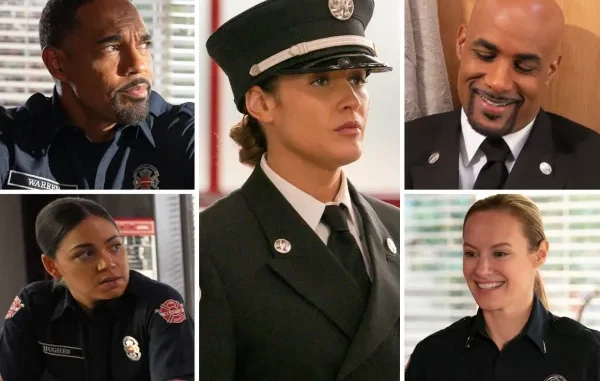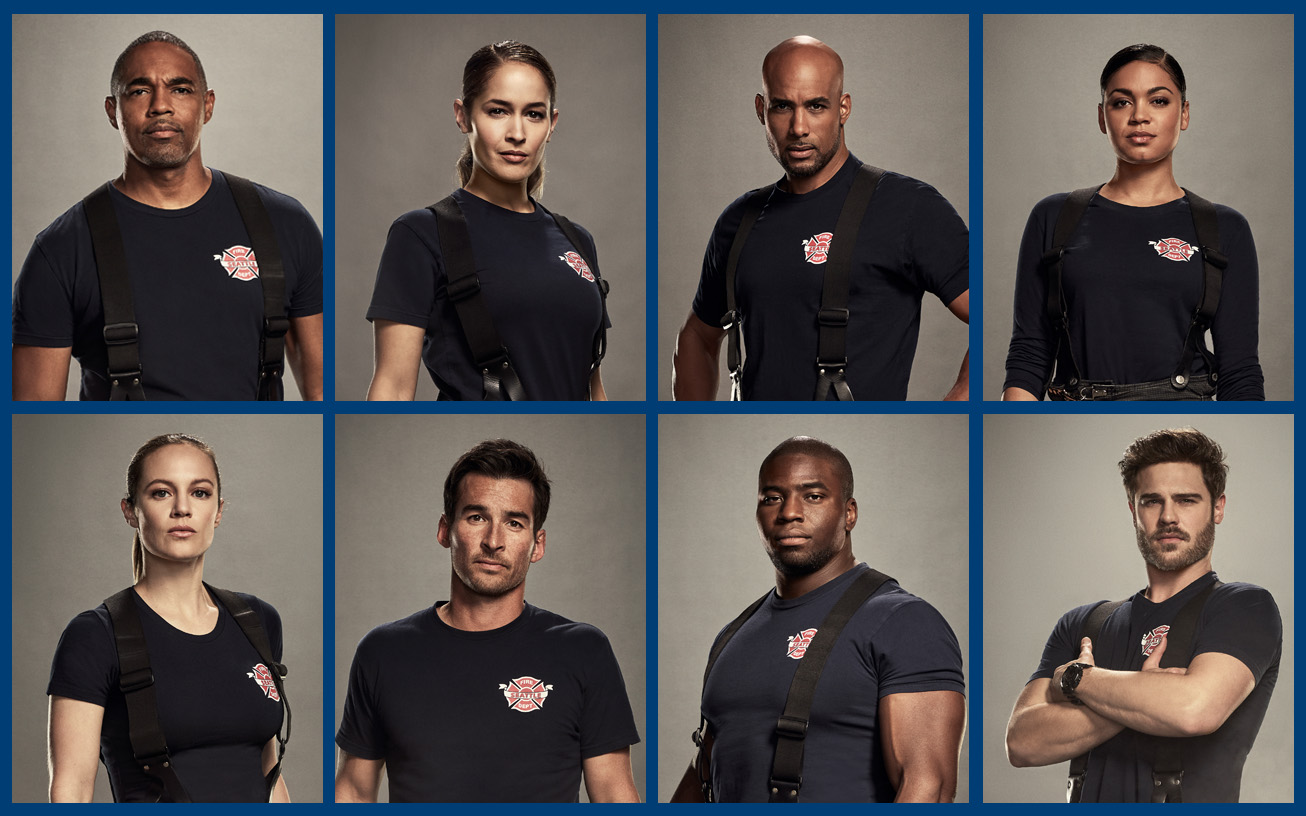
Boris Kodjoe is ready to start his next chapter. Since wrapping production last month on the final season of ABC’s venerable firefighter drama “Station 19,” the 51-year-old actor — who rose to fame in the early aughts in the Showtime drama “Soul Food” — has set his sights on broadening his horizons.
Chief among them is working more behind the camera. After directing his wife (and former “Soul Food” costar) Nicole Ari Parker in the Lifetime movie “Safe Room,” Kodjoe expressed an interest in helming an episode of “Station 19,” and his wish was granted midway through the show’s final 10-episode run. It was the ideal training ground for Kodjoe, whose exacting nature earned him a special nickname on set.
“They called me ‘Germanator,’ because I knew exactly what I needed and what I wanted, and I raced through the day,” Kodjoe, who is of German and Ghanaian descent, tells Variety with a laugh. “I got everybody home by five o’clock, and they appreciated that, so that was fun.”
Shot over eight and a half days, this week’s episode finds Chief Natasha Ross (Merle Dandridge) going toe-to-toe with Seattle mayor Robel Osman (Emerson Brooks) to save both firefighter Vic Hughes’ (Barrett Doss) job and Crisis One, the program founded by Vic’s late best friend, Dean Miller (Okieriete Onaodowan), to teach firefighters to de-escalate tense calls without police intervention. That contentious fight between Chief Ross and Mayor Osman — whose personal vendetta against Station 19 has only grown after Vic publicly called him out at a press conference in the previous episode — is juxtaposed against a series of flashbacks. In those flashbacks, the audience sees the evolution of a friendship that Vic strikes up with Morris (George Wyner), a homeless Vietnam War veteran whom she met on a Crisis One call
Due to her public outburst with the mayor, Vic is put on probation and barred from helping her squad respond to a fire at Morris’ encampment. After her fellow firefighters break the news that Morris was killed in the fire, Vic volunteers to run a debriefing session, during which they discuss what went wrong on a specific call. Shortly after initiating that group discussion, Vic — who has probably endured the most loss of any of the show’s main characters — finally reaches her breaking point, feeling the compounded weight and grief of losing not only her friend but also the program that she used to try to save him.
This episode “is about Vic coming to terms with the fact that despite always taking care of everyone else, it’s OK to let yourself fall. It’s OK to be vulnerable; it’s OK to not be strong. And that has been a long time coming for her,” Kodjoe explains in the interview below. “If you look at this final season, it’s actually been from Episode 1 that she’s been trying to keep it together, so it was a really beautiful theme.”
By the end of the episode, Chief Ross stops by Station 19 to deliver some much-needed good news: Vic can keep her job, and Crisis One will live to fight another day. While taking a break from helping his daughter, Sophie, move out of her college dorm for the summer, Kodjoe discusses his latest foray into directing, saying goodbye to the longest character he has ever played and describes the kind of sports film that he hopes to make one day.
You were given the unique challenge of juxtaposing the present-day storyline with all of these little vignettes that are designed to show the firefighters’ — and especially Vic’s — connection to Morris. What were the most important challenges and considerations that you had in mind as the director of this episode?
The VFX stuff is difficult, because you have to imagine how everything’s going to look, and based on that, you don’t have to stage every single shot and block it. There’s a lot of action [in this episode], and we had a stunt, an explosion, so those were probably the most detailed things I had to really prepare for rigorously so that I was ready for any wildcard that would just appear out of nowhere.
Other than that, the tonality of the show was interesting because, like you said, we had vignettes that took us back to the past. I wanted to set the tone visually, but also make sure that we don’t forget about some of the character traits that we knew from the past when we go back and do these flashbacks. For instance, Sullivan had come a long way from being this grumpy, authoritative, quasi-dictator that he was in the beginning, so I wanted to show that he’s come full circle by really diving into some of the new character traits that we have discovered in the last two years, and really showing the juxtaposition between him now and him then. And that goes for every single character in this episode; we had to make sure that we really considered the arc that each character went through.
The emotional climax of this hour takes place during the debriefing scene inside the firehouse. How did you approach shooting that?
First, let me give someone props who really wrote the you-know-what out of this episode, which is Rochelle Zimmerman, who was my partner-in-crime, who was there with me every step of the way. She helped me take care of our guest star and make sure that every single theme really speaks to the tonality that we were shooting for. Rochelle was really the driving force behind this episode.
I’ve got to give Barrett Doss props, because she was the one who carried the whole episode, and she did extraordinary work. She’s an amazing actress with so many different levels, and I wanted to really push her to give herself permission to access all of those subtleties that she possesses in her instrument. I wanted to slowly get her to the brink of the edge, if you will, [but] I didn’t want her to jump. I wanted her to let the audience jump for her. She did an amazing job holding and fighting her emotions, and we could really see that struggle in that [debriefing] scene. And then the bunk scene immediately following the debrief was really about her stepping into a new chapter. It’s almost like a resurrection for her when Travis tells her that it’s OK to be the baby sometimes, and I think that was a really powerful scene.
